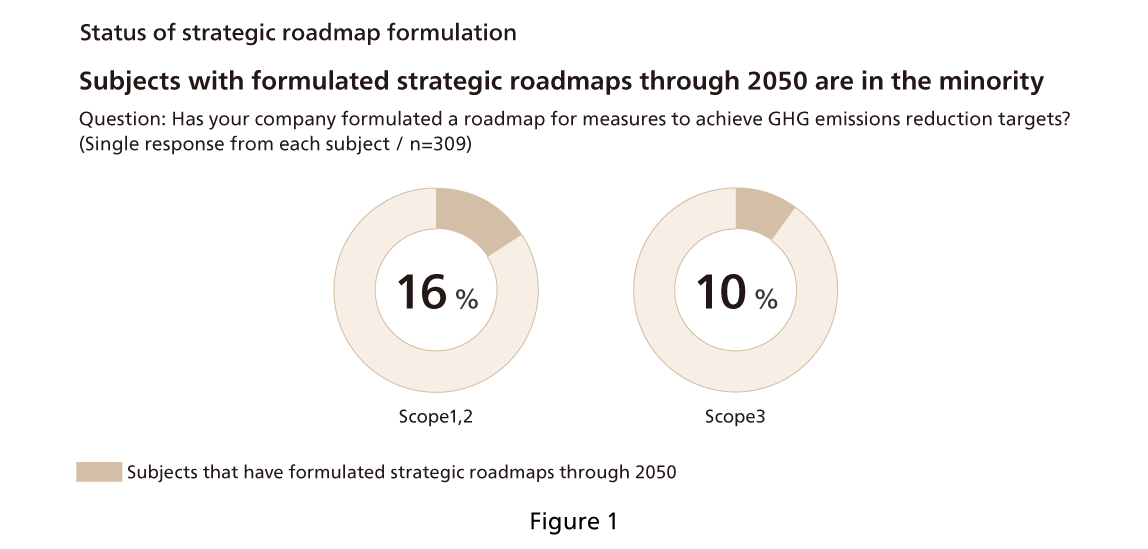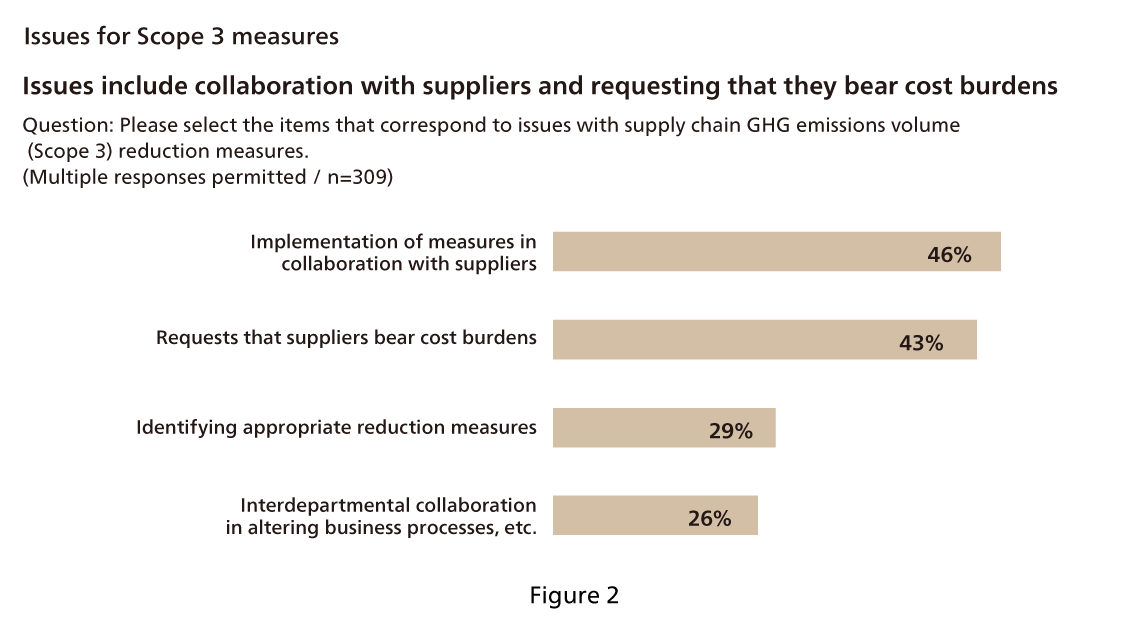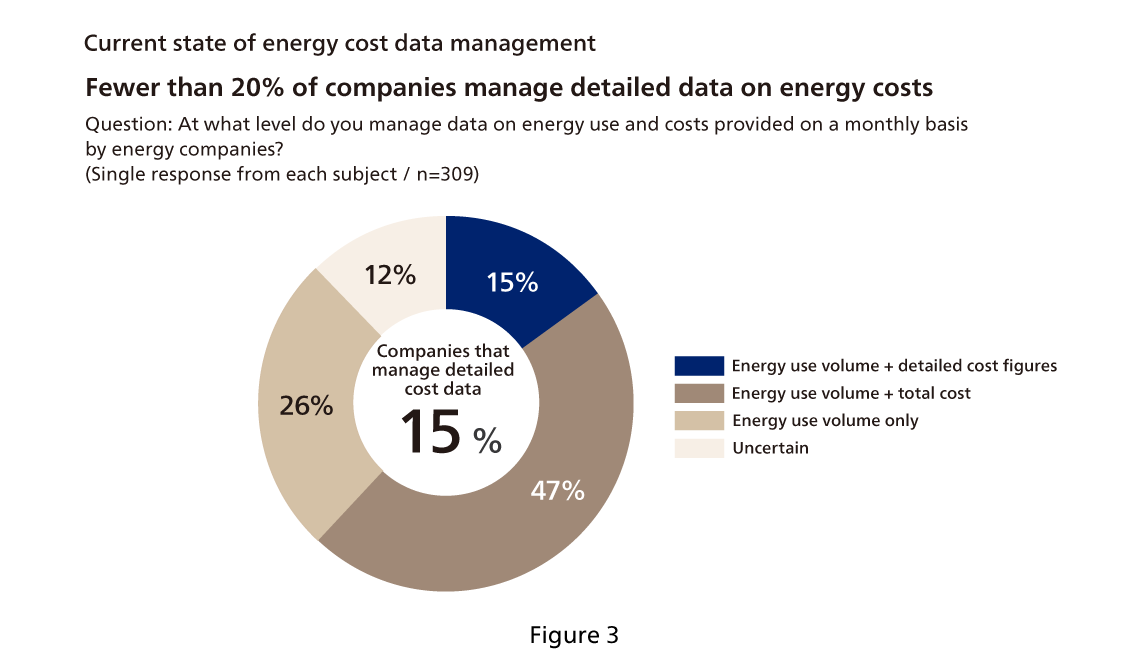Jan 28, 2022
Proposal Announced for Realizing Corporate Green Transformation (GX)
ABeam Consulting Ltd.
The Japan Research Institute Ltd.
ABeam Consulting Ltd. (Chiyoda-ku, Tokyo; Tatsuya Kamoi, President) and The Japan Research Institute Ltd. (Shinagawa-ku, Tokyo; Katsunori Tanizaki, President and Representative Director) announced today that they have developed a proposal to help companies achieve green transformation (GX).1
Amid the accelerating global trend toward realization of a carbon-neutral (decarbonized) society, there has also been a movement in Japan, since the announcement of a "2050 Carbon Neutral" policy in October 2020, to improve the business environment toward decarbonization, including means of procuring electric power from renewable energy sources. At the same time, however, companies find themselves in a market environment that becomes more complex every day, given that future introduction of carbon pricing is another factor elevating energy prices amid a global rise in energy prices.
The Japan Research Institute believes that amid ongoing rapid changes in the market environment, companies will be compelled to take a proactive approach, keeping a close watch on policy trends and alterations in the business environment so that they can anticipate those changes and proactively accommodate them in corporate policies. ABeam Consulting believes that, while achieving carbon neutrality is one crucial management issue for companies, specific measures have conventionally centered on efforts to reduce greenhouse gases. This fact will require companies to achieve GX management solutions that strategically link the efforts of management with those of the rank-and-file workplace.
ABeam Consulting and The Japan Research Institute have therefore compiled a comprehensive report on the market environment, with key points on advancing corporate GX.
■ Main survey findings
According to the survey results, management executives at more than 70% of companies have clarified their commitment to achieving carbon neutrality. Regarding strategic roadmaps laying out specific action plans, meanwhile, only 16% of companies reported having formulated roadmaps through 2050. In particular, those with Scope 3 roadmaps encompassing supply chains amounted to a mere 10% (Fig. 1). According to these results, while achieving carbon neutrality by 2050 is recognized as a crucial management issue at most companies, visibility of greenhouse gas emissions volumes throughout the whole supply chain, as well as formulation of specific strategies for achieving targets, have yet to be put in place. This makes it clear that they will need to take rapid action.

The results also make it clear that, where greenhouse gas emissions reduction policies are concerned, although Scope 2 reductions (renewable energy procurement) is being implemented, Scope 1 and Scope 3 measures involve numerous issues that have led deliberations into difficulties. In particular, only about 30% of companies have been able to initiate Scope 3 reduction measures. The survey highlighted the circumstances in which companies run into issues in coordinating these efforts with suppliers and requesting them to bear the cost. The issues they noted having with implementation of Scope 3 reduction measures included "implementation of measures in cooperation with suppliers" (46%) and "difficulty in requesting suppliers to bear the cost" (43%) (Fig. 2).

Furthermore, when asked about their greenhouse gas emissions data management and reporting systems, which are fundamental to building GX management systems integrated with corporate management, 73% of the respondents chose "energy consumption only" or "energy consumption plus total costs." This indicates that their management capabilities are limited to a presumed compliance with conventional laws. The results also revealed that only 15% of companies engage in uniform management encompassing the detailed energy cost data (contract unit price, renewable energy levies, fuel and raw materials adjustment costs, etc.), required to forecast future energy prices (Fig. 3).

■ Key points in realizing GX
ABeam Consulting and The Japan Research Institute have identified the following key tasks for companies in realizing GX: formulation of a roadmap for achieving carbon neutrality, collaborative CO2 reduction measures in supply chains, moving beyond legal compliance-based data management, and generating new revenue by creating demand-side flexibility (DSF).2 This has led to recommendations for achieving balance between corporate management and GX.
① Formulating roadmaps with the goal of realizing carbon neutrality
Formulating a roadmap that must be implemented to realize GX requires the visualization of multiple greenhouse gas reduction measures, ordered from those with the highest return on investment. The return on investment of a given greenhouse gas reduction measure will fluctuate with changes in the price of energy procured. This makes it necessary to continuously evaluate the return on investment of such measures in response to changes in the market environment, and to develop a flexible roadmap built on the assumption that implementation plans will be revised as needed.
② Collaborative supply chain CO2 reduction measures
While coordination and cost burdens are raising issues between companies in reducing CO2 emissions throughout supply chains, collaboration among multiple companies both upstream and downstream within a supply chain is essential. It is therefore thought that the most effective approach to collaboration is to build an initial scheme for calculating greenhouse gas emissions and a model for reduction measures that will create a win-win situation of mutual benefit to each company.
③ Breaking away from legal compliance-based data management
Given that data management and reporting of greenhouse gas emissions are based merely on legalistic assumptions of compliance, it has become clear that the current corporate data management systems are having difficulty coping with the impact of future market changes. The necessary first step toward realizing GX will be uniform management of data that includes cost data to enable the selection of optimal greenhouse gas emission reduction measures based on energy price fluctuation forecasts.
④ DSF creation for new revenue
In the future, it is expected to become even more crucial for companies to build business models that generate new revenue in order to achieve corporate management and GX, as well as ongoing sustainable growth. In doing so, it will become all the more important to recognize 2050 carbon neutrality not only as a risk for corporate management, but as a business opportunity, and to utilize digital technology and one's own company assets as well.
-
1.
GX
GX refers to the transformation of the social economy by converting industry from sources of greenhouse gas emissions such as fossil fuels and electric power to the use of renewable energy and carbon-free fuels. -
2.
DSF
ABeam Consulting defines DSF as flexibility among power customers created by their use of "behind-the-meter" equipment located on their premises, such as electric power generators, CHP, storage batteries, and power load systems.
Survey overview
Survey title: Survey on the Current Status and Issues in Achieving Carbon Neutrality by Electric Power Consumer Companies
Survey period: Sept. 18-20 (Sat.-Mon.), 2021
Survey method: Online questionnaire (multiple choice + free response)
Survey subjects: Companies subject to reporting under the Law Concerning the Rational Use of Energy and the Law on Promotion of Global Warming Countermeasures (309 companies)
Survey respondents: 309
The full text of the White Paper, including complete survey results, is available at the following link.
https://www.abeam.com/jp/ja/topics/insights/wp_gx
(Japanese language only)
■ Endorsements
From Koichiro Danno, Director/Principal, Research and Consulting Dept., The Japan Research Institute Ltd.
While efforts to achieve carbon neutrality are accelerating worldwide, various issues associated with the transition (energy supply and demand structure instability caused by the transition period, and drastic changes in environmental and energy policies and the business environment) are becoming apparent, posing more sophisticated and complex challenges for corporate management. Our hope is that the requirements for energy consumers presented in this white paper will be of help in steering corporate management successfully through the transition.
From Hideo Yamamoto, Director, Industrial Infrastructure Business Unit, ABeam Consulting Ltd.
Moving forward, electric power consumer companies will need to establish GX management frameworks that enable them to formulate and flexibly revise their GX strategies based on the premise that society as a whole is in a period of transition toward carbon neutrality. I hope that this White Paper will provide many corporate executives with opportunities to exert leadership in recognizing the crucial importance of GX management structures.
About The Japan Research Institute, Ltd.
The Japan Research Institute is a comprehensive information services company with three functions: think tank, consulting, and IT solutions. In keeping with our basic philosophy of co-creating new customer value, we discover issues, make specific recommendations on how to solve problems, and support implementation.
We engage in corporate activities ranging from the planning and construction of IT-based strategic information systems, provision of outsourcing services, consulting on management strategy and administrative transformation, research and analysis of domestic and foreign economies, communication of policy proposals, and incubation for new business creation.
Website: https://www.jri.co.jp/
About ABeam Consulting Ltd.
ABeam Consulting is an integrated management consulting firm that provides global services tailored to each country and region through its worldwide network centered in Asia. The wide range of consulting services it provides include strategy, BPR, IT, organization/personnel, outsourcing and other domains of specialized expertise. Roughly 6,500 richly experienced professional ABeam consultants advise in the areas of finance, manufacturing, distribution, energy, information communications, as well as industry, and organizations in the public sector and other sectors. ABeam Consulting creates the future together with corporations and other organizations. As a creative partner leading the way reliably through change, we contribute to industrial and societal change.
Website: https://www.abeam.com/jp/en
-
*
"ABeam" and its logo are registered trademarks of ABeam Consulting Ltd. in Japan and other countries.
-
*
All other trademarks and trade names appearing in this text are the property of their respective owners.
Click here for inquiries and consultations
